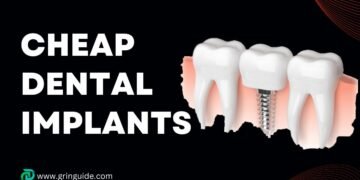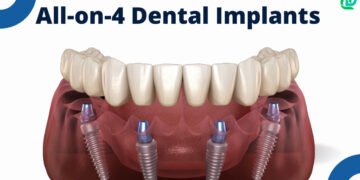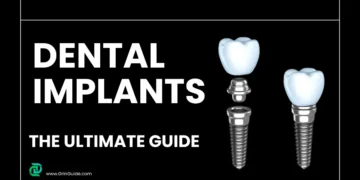Table of Contents
Introduction to Full Mouth Dental Implants
Full mouth dental implants are a comprehensive solution for individuals who have lost most or all of their teeth. Unlike traditional dentures, full mouth dental implants are designed to provide a permanent and stable foundation for artificial teeth. This advanced dental procedure involves the surgical placement of multiple implants into the jawbone, which then support a full set of prosthetic teeth. These implants mimic the function of natural tooth roots, providing a strong and durable base for the replacement teeth.
The primary purpose of full mouth dental implants is to restore the function and appearance of the patient’s mouth. This procedure is particularly beneficial for individuals who have experienced significant tooth loss due to factors such as severe decay, gum disease, or trauma. By opting for full mouth dental implants, patients can regain their ability to chew and speak properly, which in turn enhances their overall quality of life. Additionally, the implants help maintain the structure of the jawbone and prevent bone loss, a common issue associated with missing teeth.
The benefits of full mouth dental implants extend beyond just functional improvements. They also offer aesthetic advantages, as the prosthetic teeth are custom-made to resemble natural teeth closely. This results in a more natural-looking smile, boosting the patient’s confidence and self-esteem. Furthermore, full mouth dental implants eliminate the discomfort and inconvenience often associated with removable dentures, such as slippage and the need for adhesives.
Patients who might need full mouth dental implants typically include those who have lost a significant number of teeth and are looking for a long-term solution. Individuals with chronic dental issues that have led to extensive tooth damage or loss are also prime candidates for this procedure. It is essential to note that good oral health and sufficient jawbone density are critical for the successful placement of dental implants. Therefore, a thorough evaluation by a dental professional is necessary to determine the suitability of a patient for full mouth dental implants.
Factors Influencing the Cost of Full Mouth Dental Implants
The cost of full mouth dental implants can be influenced by a myriad of factors that collectively determine the final expenditure.
1.Type of Implants
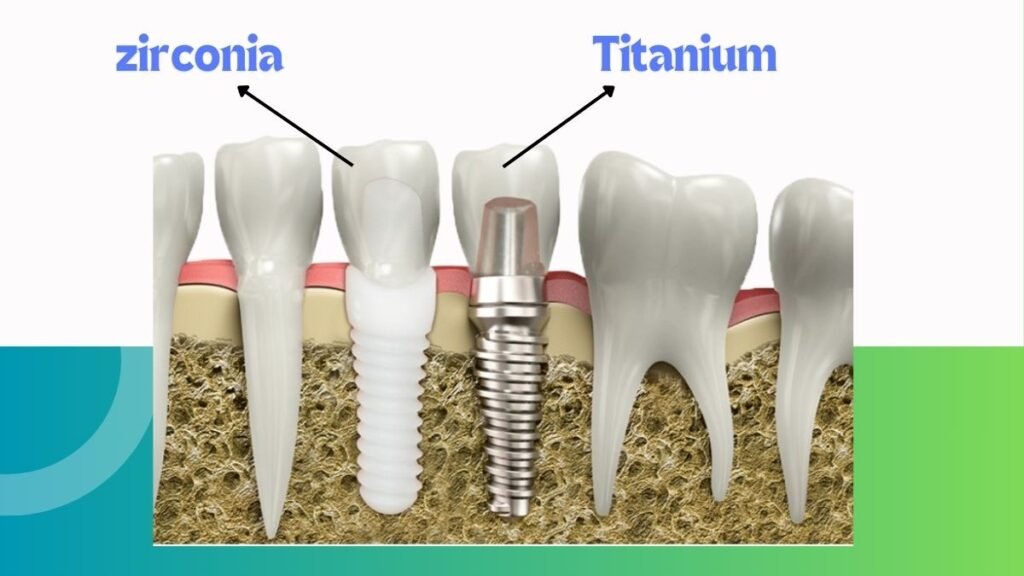
One of the primary determinants is the type of implants used. There are various types of dental implants, each differing in material quality and design. Premium materials such as titanium implants or zirconia implants often come at a higher cost due to their durability and biocompatibility.
2. Complexity of the Procedure
The complexity of the procedure also plays a significant role. Full mouth dental implants require meticulous planning and execution. The complexity can vary based on individual patient needs, such as the condition of the jawbone and the alignment of the remaining teeth.
For instance, a patient with significant bone loss may require additional procedures like bone grafts, which add to the overall cost.
3. Preliminary treatments
Preliminary treatments are another crucial factor. Before the actual implantation, patients might need preparatory treatments like tooth extractions, sinus lifts, or bone grafting to ensure the success of the implants.
These additional procedures are essential for creating a stable foundation for the implants but inevitably increase the total expense.
4. Geographic location
Geographic location is an often-overlooked factor that can substantially influence the cost of full mouth dental implants. Dental services in urban areas or regions with a higher cost of living tend to be more expensive compared to rural areas.
Additionally, the availability of specialized dental surgeons in a given area can impact pricing; areas with a higher concentration of experienced professionals may offer competitive rates.
5. The Expertise of Surgeon
Lastly, the expertise of the dental surgeon significantly affects the overall cost. Highly experienced and reputable dental surgeons often charge premium fees for their services.
This premium is generally reflective of their extensive training, advanced skills, and proven track record in performing complex dental implant procedures. While opting for a highly qualified surgeon may increase the initial cost, it can contribute to a more successful and long-lasting outcome.
Breakdown of Costs: What to Expect
When considering full mouth dental implants, it is crucial to understand the various components that contribute to the overall cost. This breakdown aims to provide a clearer picture of where the financial expenditure lies, helping you to budget effectively for this significant dental procedure.
1. Consultation fee
First and foremost, the initial consultation fee is a starting point. This appointment typically ranges from $100 to $300, depending on the dental clinic and the complexity of the case. During this visit, your dentist will evaluate your oral health, discuss your goals, and outline a treatment plan.
2. Diagnostic imaging
Next, diagnostic imaging such as X-rays and CT scans are essential for planning the placement of the implants. These imaging procedures can cost between $200 and $1,000. They provide a detailed view of your jawbone structure, ensuring accurate and successful implant placement.
3. Surgical Procedure
The surgical procedure itself is one of the most significant components of the cost. The price for the surgical placement of implants varies widely, typically ranging from $1,500 to $6,000 per implant. Given that a full mouth restoration involves multiple implants, this can be a substantial part of the overall expense.
The actual dental implants, including the posts and crowns, also add to the cost. Each implant can range from $1,000 to $3,000, depending on the materials used and the complexity of the case. High-quality materials often result in better durability and aesthetics, which can justify the higher expense.
4. Anesthesia
Anesthesia is another necessary component, ensuring the procedure is painless and comfortable. Depending on the type of anesthesia used—local, sedation, or general—the cost may range from $500 to $2,500.
5. Postoperative care
Postoperative care and follow-up visits are essential for ensuring the success of the implants. These can include medications, cleaning, and regular check-ups, which may add another $500 to $1,500 to the total cost.
By understanding these individual cost components, you can better prepare for the overall expense of full mouth dental implants. This thorough breakdown not only clarifies where your money is going but also helps in making informed decisions about your dental health investment.
The average cost of Full Mouth Dental Implants is around $43,000 and may go up to $56,000.
Insurance and Financing Options
When considering the cost of full mouth dental implants, it’s important to understand the role that dental insurance can play. Typically, dental insurance plans may cover some aspects of the procedure, such as consultations, x-rays, and extractions. However, the complete cost of full mouth dental implants is often not fully covered by insurance policies. Patients should carefully review their insurance plans to determine the specifics of their coverage and to identify any limitations or exclusions that may apply.
For those whose insurance does not cover the full cost, working closely with the insurance provider is essential. Patients can request a pre-treatment estimate, which will outline the expected costs and the portion that will be covered by the insurance. This estimate can be a useful tool for financial planning and can help in discussions with the dental care provider about the overall expenses involved.
In cases where dental insurance offers partial coverage or none at all, there are several financing options available to help manage the cost of full mouth dental implants. Many dental practices offer in-house financing plans that allow patients to pay for their treatment in installments over time. These plans can make the procedure more accessible by spreading the cost over several months or years.
Additionally, third-party financing companies specialize in providing loans for medical and dental procedures. These companies can offer flexible payment plans with various interest rates and terms, tailored to fit the patient’s financial situation. Some popular financing options include CareCredit, LendingClub, and GreenSky, among others.
Another option to consider is health care credit cards, which are specifically designed for medical expenses. These cards often come with promotional interest rates for an initial period, making them a viable option for those looking to manage their full mouth dental implants cost effectively.
Ultimately, understanding the available insurance and financing options can significantly ease the financial burden of full mouth dental implants, allowing patients to focus on achieving their desired dental health outcomes.
When considering dental restoration options, understanding the cost implications of different solutions is crucial. Full mouth dental implants, while often perceived as a significant investment, offer distinct advantages over other dental solutions such as dentures and bridges. By examining the cost-effectiveness and benefits of these options, one can make an informed decision about the best approach to dental health.
Initial Costs and Long-Term Value
The upfront cost of full mouth dental implants is generally higher than that of dentures or bridges. However, evaluating only the initial price does not provide a comprehensive understanding of the financial implications.
Dentures, for example, may appear more affordable initially, but they often require frequent replacements and adjustments, which can add up over time.
Similarly, dental bridges, while less expensive than full mouth implants initially, may necessitate replacement every 5 to 15 years, alongside potential costs for adjacent teeth maintenance.
In contrast, full mouth dental implants are designed for durability and longevity. With proper care, implants can last a lifetime, significantly reducing the need for future dental work and associated costs. This durability translates into long-term cost-effectiveness, as the one-time investment in implants can outweigh the recurring expenses of other dental solutions.
Quality of Life and Functional Benefits
Beyond financial considerations, the functional benefits of full mouth dental implants also contribute to their overall value. Implants offer superior stability and functionality, closely mimicking natural teeth. This stability enhances chewing efficiency and speech clarity, providing a more comfortable and effective dental solution compared to dentures, which may slip or cause discomfort.
Moreover, unlike bridges, which rely on adjacent teeth for support and can compromise their integrity, dental implants are independent structures that do not negatively impact neighboring teeth. This preservation of natural teeth and bone health is a significant advantage, further emphasizing the long-term benefits of opting for implants.
In essence, while the initial cost of full mouth dental implants may be higher, their long-term value, durability, and functional benefits make them a compelling choice compared to other dental restoration solutions. When considering both the financial and quality of life aspects, full mouth dental implants present a comprehensive and effective dental restoration option.
Real Patient Case Studies and Testimonials
To better grasp the value and implications of full mouth dental implants, it is beneficial to look at real patient experiences. These case studies and testimonials shed light on the journey from initial consultation to the final results, offering a transparent view of full mouth dental implants cost and their transformative impact on lives.
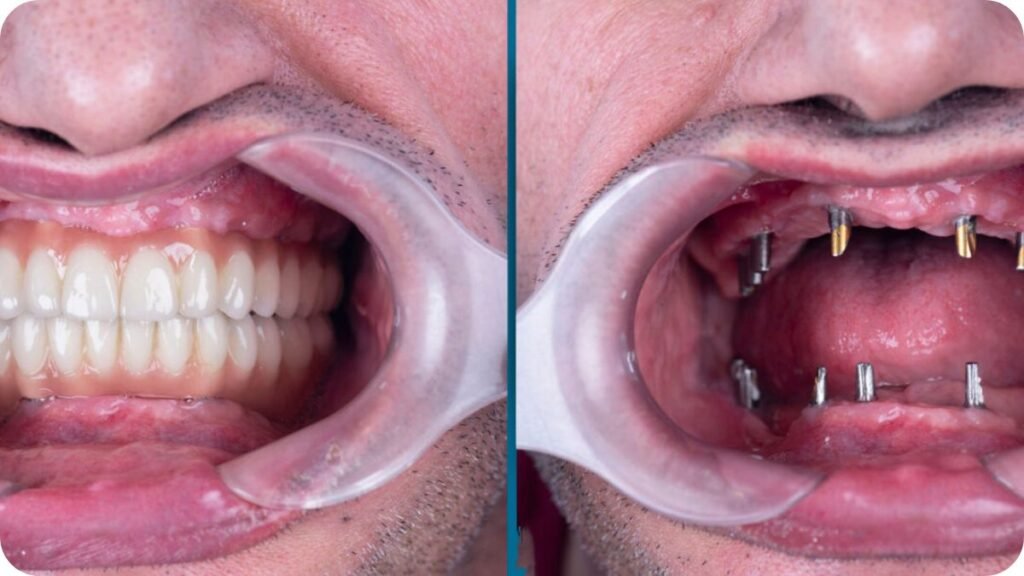
Consider the case of John, a 58-year-old retiree who had been struggling with severe dental issues for years. John opted for full mouth dental implants after consulting with his dentist about his declining oral health. The total cost of John’s full mouth dental implants was approximately $45,000. While this may seem steep, John testifies that the investment was worthwhile.
Within months, he experienced significant improvements in his ability to eat and speak, and he regained the confidence to smile without hesitation. John’s story underscores not only the financial commitment but also the profound positive changes that can arise from such a procedure.
Similarly, Mary, a 65-year-old grandmother, shared her journey. Mary had multiple missing and decayed teeth, which caused her considerable discomfort and embarrassment. After undergoing a full mouth dental implant procedure at a cost of $50,000, Mary reported a dramatic enhancement in her quality of life. She could enjoy her favorite foods again, and her social interactions improved as she no longer felt self-conscious about her smile. Mary’s experience highlights the personal and emotional benefits that often accompany the financial outlay for full mouth dental implants.
These testimonials illustrate that while the full mouth dental implants cost can be substantial, the outcomes frequently justify the investment. Patients consistently report significant improvements in their oral health, functionality, and overall quality of life. By understanding these real-life stories, potential patients can better appreciate the holistic value that full mouth dental implants can offer.
Tips for Reducing the Cost of Full Mouth Dental Implants
Undergoing a full mouth dental implant procedure can be a significant financial investment. However, there are several strategies you can employ to help manage and reduce the overall cost. By being proactive and exploring various options, you can make this transformative dental treatment more accessible and affordable.
1. Dental schools
One effective approach is to consider seeking treatment at dental schools. Dental schools often offer reduced rates for procedures performed by students under the supervision of experienced faculty.
This can significantly lower the full mouth dental implants cost while still ensuring a high standard of care. Additionally, these institutions are equipped with the latest technology and adhere to stringent safety protocols.
2. Dental tourism
Another viable option is to look into dental tourism. Countries such as Mexico, Thailand, and Hungary are renowned for providing high-quality dental care at a fraction of the cost compared to the United States and Western Europe.
While this involves traveling abroad, the overall savings can be substantial, even after accounting for travel and accommodation expenses. It is crucial, however, to thoroughly research the credentials and reputation of the dental clinic and the qualifications of the practitioners before making any commitments.
3. Discount plans
Exploring discount plans or payment plans offered by dental clinics can also be a practical way to manage costs. Many dental practices provide in-house financing options or partner with third-party financing companies to offer patients flexible payment plans.
These plans often come with low or zero interest rates, making it easier to spread out the full mouth dental implants cost over a more manageable period. Additionally, some clinics offer discounts for upfront payments or special promotions during certain times of the year.
By taking the time to investigate these options, you can significantly reduce the financial burden of full mouth dental implants while still achieving the desired outcome. Careful planning and thorough research will ensure that you receive quality dental care at a price that fits your budget.
Conclusion and Final Thoughts
In conclusion, understanding the cost of full mouth dental implants involves a comprehensive assessment of multiple factors. These include the initial consultation, diagnostic tests, surgical procedures, the quality and type of implants used, and any additional treatments required for optimal results. It’s crucial to remember that while the price tag might seem high, the long-term benefits of full mouth dental implants, such as enhanced oral function, aesthetics, and overall quality of life, often justify the investment.
When evaluating the full mouth dental implants cost, it’s essential to consider not only the immediate expenses but also the potential for long-term savings. Traditional dentures and other less permanent solutions may require frequent replacements and ongoing maintenance, which can add up over time. In contrast, dental implants are designed to be a durable, lasting solution, providing significant value over the years.
We encourage you to consult with your dental professionals to get a personalized estimate and to discuss the best options for your specific dental needs. Each patient’s situation is unique, and a tailored consultation can provide a clearer picture of the overall investment required. Additionally, many dental practices offer financing options or payment plans to help manage the cost of full mouth dental implants more feasibly.
If you are considering full mouth dental implants, it is wise to gather as much information as possible and weigh all factors carefully. This will ensure that you make an informed decision that aligns with both your dental health goals and your financial situation. For those seeking more detailed cost estimates or personalized consultations, we recommend reaching out to a trusted dental professional who can guide you through the process.
FAQs
-
Are full mouth dental implants a good idea?
Yes, by opting for full mouth dental implants, patients can regain their ability to chew and speak properly, which in turn enhances their overall quality of life, they also offer aesthetic advantages.
-
How much does it cost for full mouth implants in USA?
The cost of full mouth implants in the USA can vary significantly, typically ranging from $40,000 to $70,000 or more. This wide range is influenced by several factors including the complexity of the case, the type of implants used, and the geographic location of the dental practice. Understanding the breakdown of these costs can help in making an informed decision.
-
How many implants are needed for full mouth?
Various factors influence this decision, ensuring that each patient’s unique needs are adequately met.
The All-on-4, All-on-6, and All-on-8 techniques are commonly employed methods for full mouth restoration.
The consultation and planning phase is essential in determining the precise number of implants needed. During this stage, dental professionals conduct a comprehensive evaluation, often incorporating diagnostic imaging techniques such as CT scans and X-rays. -
How long do full mouth implants last?
Studies and expert opinions suggest that, with proper care, full mouth implants can last between 10 to 15 years, and in some cases, even longer.
-
Can full mouth implants be done in one day?
Yes, Performing same-day full mouth implants successfully requires significant expertise. Dental professionals must have specialized training in implantology and access to advanced technology, such as 3D imaging and computer-guided surgery. This expertise ensures precise implant placement and optimal outcomes.
-
How painful are full mouth dental implants?
The experience of pain can vary significantly among patients, influenced by individual pain thresholds and overall health. During the implant procedure, anesthesia and sedation play crucial roles in minimizing discomfort.
Post-operative pain, is usually manageable with proper care and medication. Dentists often prescribe pain relief medications to help control post-operative pain.
